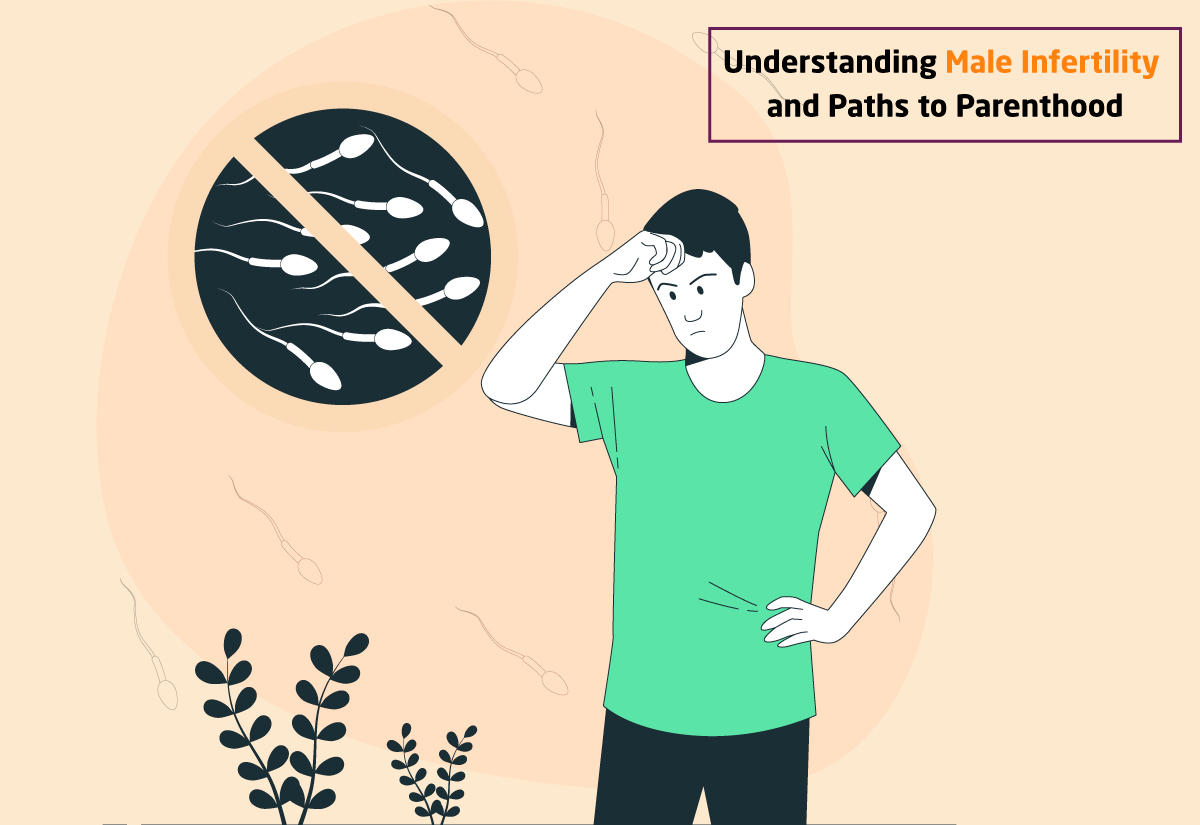Understanding Male Infertility and Paths to Parenthood
Introduction:
When discussing having kids, people often focus on sexual health. But the conversation isn’t complete without addressing male fertility. Male infertility requires alot more research as it’s a highly prevailing global health issue. This blog explains what male infertility is, its diagnosis, and what methods might work.
Must Read: Low Levels of Testosterone in Women
Section 1: What is Male Infertility?
Male infertility is when a guy can’t get pregnant with his partner, even after having regular, unprotected sex. Couples who are having trouble getting pregnant need to understand this complicated problem that is caused by many things.
Section 2: The Anatomy of Male Reproductive Health:
To understand male infertility, you need to know a lot about how the male reproductive system works. Each part is very important, from the testes (which make sperm) to the vas deferens (which moves it around). Fertility problems can happen if any of these steps are messed up.
Section 3: Common Causes of Male Infertility:
- a) Low Sperm Count: A leading cause, low sperm count, or oligospermia, reduces the likelihood of fertilizing an egg.
- b) Poor Sperm Motility: Sperm must be able to move swiftly to reach the egg. Reduced motility hampers this journey.
- c) Abnormal Sperm Morphology: The shape of the sperm matters. Abnormalities can hinder its ability to penetrate the egg.
- d) Erectile Dysfunction: Difficulty in achieving or maintaining an erection can impede successful conception.
- e) Varicocele: Enlarged veins within the scrotum can overheat the testicles, affecting sperm production.
- f) Genetic Factors: Inherited conditions, such as Klinefelter syndrome, can contribute to male infertility.
Section 4: Signs and Symptoms:
Male infertility usually shows up in subtle ways, and some men may not have any signs at all. But you shouldn’t ignore signs like changes in sexual function, pain or swelling around the testicles, or problems with hormones.
Section 5: Diagnosis and Testing:
When there are problems with fertility, it is very important to get a full test. As examples of diagnostic tests, semen analysis, hormones evaluations, genetic testing, and imaging studies may be used. Talking to a fertility expert can help you figure out what the problems are.
Section 6: Lifestyle Factors and Male Infertility:
Male fertility is affected by the environment and the way men live their lives. Infertility can be caused by bad habits like smoking, drinking too much booze, not eating well, and not moving around much. Taking care of these issues can improve sexual health.
Section 7: Treatment Options:
Lifestyle Modifications:
Adopting a healthier lifestyle through diet, exercise, and stress management can enhance fertility.
Medications:
Fertility medications may be prescribed to address hormonal imbalances or stimulate sperm production.
Surgery:
Surgical interventions, such as repairing varicoceles, can improve fertility in some cases.
Assisted Reproductive Technologies (ART):
Procedures like in vitro fertilization (IVF) or intracytoplasmic sperm injection (ICSI) can be effective for severe cases of male infertility.
Section 8: Emotional and Psychological Impact:
There are more effects of infertility than just physical ones. It can also be hard on your mental health. Problems with fertility can cause stress, worry, and depression in couples. Seeking help through therapy or support groups can be very helpful.
Conclusion:
There are many causes of male infertility, but advances in reproductive science give couples who are trying to get pregnant hope. To become a parent, you need to know what causes it, how to spot the signs, and what treatment choices are out there. When they get the right help, many couples can get over their infertile problems and have the family they’ve always wanted.

